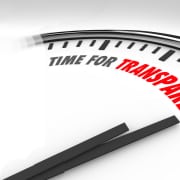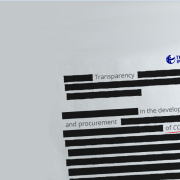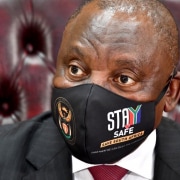|
Getting your Trinity Audio player ready...
|
By Caroline James and Karam Jeet Singh
First published on News24
Corruption Watch, along with the nation, anxiously sees the number of Covid-19 cases rising while the number of available hospital beds fall. The public health system is under extreme strain but significant resources have been put aside to address the crisis.
In this national state of disaster, the question as to how government spends public money allocated to fight the pandemic becomes ever more pressing. The situation requires a renewed commitment to ensuring public spending is not wasted and transparency in the system of public spending is amplified.
A snapshot from the Eastern Cape demonstrates serious cause for concern: R10 million for scooters which may or may not be ambulances; handwritten invoices for R4.8 million for door-to-door campaigns during a “stay-at-home” lockdown; and rotten maize being distributed to hungry residents.
Recently, in a refreshingly candid interview, Professor Salim Abdool Karim traced the inability of Eastern Cape hospitals to meet the demand for Covid-related care back to corruption and incompetence.
With the country under State of Disaster Act regulations since 15 March 2020, and with no clear indication of when the state of disaster would be lifted, it is difficult to understand what heightened measures government have actually put in place to prevent corruption, given the risk.
Emergency procurement
The quick procurement of essential medical supplies is vital during this pandemic, but public procurement has proven to be extremely vulnerable to corruption. Like many countries, South Africa is now faced with the question of how to balance the justifiable need to mobilise public resources without compromising the integrity of the process.
South Africa’s existing procurement legislation allows for a deviation from the normal procurement processes during an emergency, and National Treasury has given further guidance with a series of instructions on how emergency procurement should take place during the state of disaster. Under these rules, government is able to avoid the lengthy process of inviting competitive bids for goods or services.
The main variation of normal procurement rules refers to transversal contracts – those contracts facilitated by National Treasury to centrally contract goods or services which are required by multiple government departments.
Unlike normal procurement rules which require departments to obtain individual approval from National Treasury, the Covid-19 regulations grant a blanket upfront permission to all organs of state to join existing transversal contracts for specifically listed PPE items.
In addition, departments are able to individually procure outside of a transversal contract to which they participate. Ordinarily, when an organ of state participates in a transversal contract, it may only procure the relevant goods or services under that contract, it may not procure the same or equivalent goods or services from a supplier outside of the transversal contract.
Transparency
However, there is huge potential for corruption in this system. One of the principles of open government – to which South Africa subscribes – is to publish publicly accessible open data of all government contracts. Publishing data on procurement contracts need not impede the speed at which urgent medical supplies can be obtained, but it would dramatically improve the ability to monitor procurement, and ultimately improve the quality and efficacy of emergency health procurement.
Transparency of emergency procurement information also assists those tasked with ensuring accountability of public spending to carry out their mandate. The scale of the task to monitor procurement and to ensure accountability is significant. This is a project which must involve government, external control agencies such as the Auditor-General, investigative agencies such as the Special Investigating Unit (SIU), and civil society.
South Africa’s emergency procurement laws deem breaches of statutory duties and the failure to prevent unauthorised, irregular or fruitless and wasteful expenditure, to be unlawful. However, under the existing, opaque system of emergency procurement, it is almost impossible to obtain information on how procurement is effected. This renders detection, and ultimately sanctions, for non-compliance ineffective.
SIU investigations
The SIU has been vocal about its possible investigations throughout the state of disaster – and the Eastern Cape Premier has specifically requested the SIU’s assistance in investigating allegations of corruption.
The SIU is seeking a proclamation to investigate Covid-19 related complaints. However, without greater transparency around how contracts under emergency procurement regulations are awarded and implemented, even with a suitably wide proclamation to investigate the SIU will be challenged to fulfil its mandate.
The Public Audit Amendment Act, adopted in 2018, conferred on the Auditor-General increased enforcement powers, allowing that office to refer financial irregularities to law enforcement agencies and to issue certificates of debt to personally hold government officials accountable for financial mismanagement.
However, like the SIU, the work of the Auditor-General would be massively aided by greater transparency of procurement information, allowing it to work more effectively and efficiently to address multiple allegations of corruption within emergency procurement.
Earn public trust through sharing of procurement information
The media and civil society have been instrumental in exposing corruption in South Africa through rigorous investigating and reporting work. However, given the lack of transparency in the current system, the ability to effectively monitor procurement during the state of disaster is incredibly challenging.
Cyril Ramaphosa has repeatedly styled his presidency as being one committed to fighting corruption and restoring public trust in government institutions.
At this time of crisis, with the public health system beginning to show extreme strain and with rising concerns about the effective use of public funds to fight the coronavirus, the president and the National Command Council must do more to earn South Africans’ trust that they have the crisis under control – including addressing the corruption risks emerging under the current conditions.
Making public all information on the procurement of goods and services necessary for that fight would be a very good place to start.
• Caroline James is a lawyer in the Legal and Investigations department at Corruption Watch and Karam Jeet Singh is the head of Legal and Investigations at Corruption Watch.








